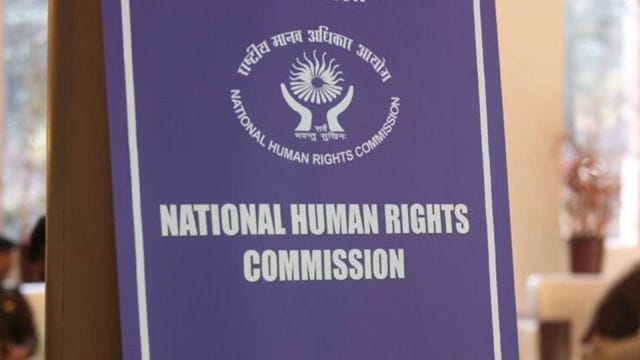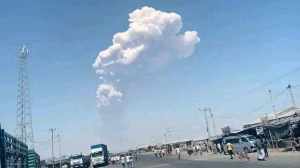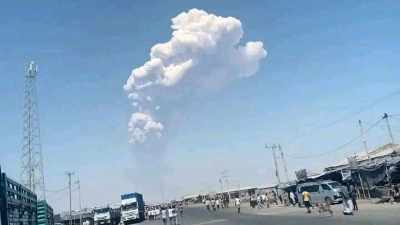The apex body of human rights in the country often faces criticism of being a “toothless tiger” over its efficacy in executing orders.

The NHRC Chairperson Justice V Ramasubramanian responded to the claims while speaking to The New Indian Express and said the commission has the power to summon and enforce the attendance of witnesses and underlined its powers akin to a civil court when it comes to inquiry and investigation. Justice Ramasubramanian, therefore, dismissed the tag.
A deeper look into how the body aims to be the guardian of human rights, reflects the mechanics of its scope, powers and redressal.
Recent cases where NHRC stepped-in
- On March 3, the NHRC ordered an on-spot inquiry into the alleged suicide by an engineering student from Nepal in her hostel room at KIIT, Bhubaneswar on February 16 and the subsequent incidents on the campus.
- The commission took cognisance, based on a complaint regarding the alleged murder of an army jawan from Gujarat, on board the Jammu Tawi-Sabarmati Express, by a coach attendant when it was passing by Rajasthan. On November 6, it issued notices to the chairman and CEO of the Railway Board, and to the director general of the Railway Protection Force, asking them to submit an action taken report.
- On October 15, the commission took suo motu cognisance of media reports on the alleged torture of a teenaged boy in police custody at a police station in Gujarat’s Rajkot district last month. It had issued notice to the DGP, Gujarat, seeking a detailed report on the matter within two weeks.
- On September 13, it issued a notice to the Assam Police chief over reports that a media person was allegedly assaulted and grievously injured by a group of anti-social elements near Lumding Railway Institute.
- On December 26, 2024, it had sought the Kerala government’s response to reports of high incidence of suicide among the tribal population in Peringammala Panchayat in Thiruvananthapuram district.
Functions
Section 12 of the Protection of Human Rights Act lays down the functions of NHRC.
NHRC can conduct suo motu inquiry, or on a petition by a victim or any person, into the complaint of human rights violation or abetment thereof. It can also inquire cases of negligence in the prevention of human rights violation, by a public servant.
The commission can intervene in any proceeding involving any allegation of violation of human rights pending before a court with the approval of such court.
Story continues below this ad
It can visit any jail or other institution where persons are detained or lodged for purposes of treatment, reformation or protection, for the study of the living conditions of the inmates thereof and make recommendations thereon to the government.
One of the important functions of the NHRC is to review the safeguards provided by or under the Constitution and existing laws for the protection of human rights and recommend measures for their effective implementation.
It examines factors, including acts of terrorism, that inhibit the enjoyment of human rights and suggests appropriate remedial actions. The NHRC also studies treaties and other international instruments on human rights and makes recommendations for their effective enforcement.
Beyond these functions, the commission has the responsibility of spreading human rights literacy among various sections of society. This is done through publications, media, seminars, and other available means to promote awareness of rights and safeguards. It further encourages and supports the efforts of non-governmental organisations and institutions working in human rights.
Story continues below this ad
Powers related to inquiries
Section 13 specifies the NHRC’s powers related to inquiries.
While inquiring into the complaints specified under the Protection of Human Rights Act, the commission possesses all the powers of a civil court trying a suit under the Code of Civil Procedure, 1908.
The NHRC is also authorised to receive evidence through affidavits. Additionally, the Commission has the power to requisition any public record or copies thereof from courts or government offices. It can issue commissions for the examination of witnesses or documents.
The commission can also order transfer of any complaint filed or pending before it, to the state commission of the state from which the complaint arises, for disposal.
Story continues below this ad
Investigative powers
Section 14 contains provisions for investigative powers of the NHRC.
The commission has the power to use the services of any officer or investigation agency of the Central government or any state government for the purposes of investigation. This is subject to concurrence of the central Government or the state government, as the case may be.
The commission can ask for a report from such an officer or agency within a specific timeline.
Inquiry into complaints
Section 17 provides for NHRC’s powers related to inquiry into complaints.
Story continues below this ad
While inquiring into the complaints of human rights violation, the NHRC can call for information or report from the central government or any state government or any other authority or organisation subordinate thereto.
If the information or report is not received within the stipulated time, it may proceed to inquire into the complaint on its own.
Section 18 provides that if the inquiry discloses the commission of human right violation or negligence in the prevention of human rights violation or abetment thereof by a public servant, it may recommend to the concerned government or authority for payment of compensation or damages to the complainant or to the victim or their family members.
It can also recommend initiation of prosecution or such other suitable action against the concerned person or persons. The commission can also recommend for the grant of immediate interim relief to the victim or to their family members.

































